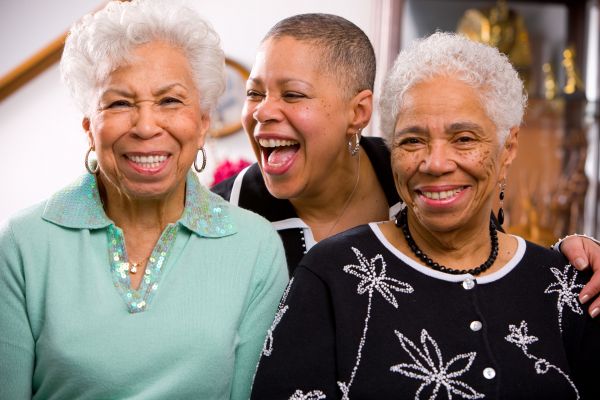April is both Minority Cancer Awareness Month and Minority Health Month, and the start of spring makes this a great time to think about adopting some healthy habits, making some changes and getting important health screenings.
Nurses and other members of the medical team at Roswell Park Comprehensive Cancer Center maintain the highest levels of safety and follow all COVID practices, including wearing masks, keeping a safe space between themselves and others, and sanitizing spaces after every patient visit, and they want the community to know that Roswell Park is a safe place to come for screenings.
“We don’t want to forget our overall health and how important it is to protect ourselves by keeping up with cancer prevention screenings,” says Nikia Clark, Community Relations Coordinator in the Department of Cancer Prevention and Control. “We’re reminding people to get their mammograms, their colorectal screenings and, for men, their prostate screenings.”
Many cancers are linked to obesity, and the arrival of nicer weather provides more opportunities for people to get outside, get some fresh air and exercise in the open while also keeping a safe distance from others, Nikia says. “Getting 15 to 30 minutes of physical activity a day is so important. It gets your heart rate up. Or go to a mall and take advantage of walking hours, even if the stores are closed. Spring is a great time to refresh, restart healthy habits and look again at your health.”
Lung cancer remains the leading cause of cancer-related death in the United States, with about 80% of lung cancer deaths and 40% of cancer deaths overall caused by tobacco use. Roswell Park offers help for people who want to quit smoking — an effective way to decrease the risk of lung cancer. Based at Roswell Park, the New York State Smokers’ Quitline can send you reminders of healthy practices and the benefits of quitting smoking plus other assistance — including free stop-smoking medications if you’re eligible — so you can break the habit for good. Visit nysmokefree.com or call 1-866-NY-QUITS (1-866-697-8487).
Roswell Park also provides lung cancer screening that involves a low-dose CT scan, for people between the ages 50 and older who have smoked in the last 15 years (even if you’ve quit) and who smoked at least a pack of cigarettes every day for 20 years (or an equal amount).
If you’re not sure of your risk of lung cancer, call 1-800-ROSWELL (1-800-767-9355) to find out whether you should be screened.
Colorectal, prostate cancer rates higher in minority communities
Some cancers are of particular concern to individuals of color, including colorectal and prostate cancer.
Colorectal cancer remains the third-leading cause of cancer-related deaths in men and women and is expected to cause about 52,980 deaths in 2021.
Although deaths from colorectal cancer have decreased overall in recent years, they have been rising among people younger than 55. Younger people, especially younger Black men and women, are more likely to get colorectal cancer — and to die of it — than any other racial group in the United States, for reasons that are not yet fully understood.
About 90% of people who die from colorectal cancer are over the age of 50, but people under the age of 50 who are diagnosed with the disease are more likely to have advanced cases by the time the cancer is discovered. This year an estimated 12% of colorectal cancer cases will occur in people under 50, following a trend of higher rates of colorectal cancer in young adults that has been tracking since the mid-1980s.
Black men are one and a half times more likely to be diagnosed with prostate cancer and are more than twice as likely to die from the disease. It’s also the most-diagnosed cancer in Hispanic men.
For prostate cancer, the National Comprehensive Cancer Network recommends early screening tests for Black men, or any men with a father or brother who had prostate cancer, especially if they were under the age of 60 at the time of diagnosis. If you have had genetic testing that found a genetic mutation linked to an increased risk of prostate cancer, you may also qualify for early screening for prostate cancer (before the age of 45).
Women need regular screenings, too
Roswell Park also offers mammograms, a routine screening for breast cancer that women are encouraged to get regularly starting at age 40. While Black women are not diagnosed with breast cancer as frequently as white women, Black women are more likely to die from it when it is found, making mammograms and regular breast screenings even more important.
Women also should be screened for cervical cancer starting at age 21, with regular Pap tests every three years between the ages of 21-29. Women between the ages of 30-65 should have regular Pap tests and HPV tests every five years. If a woman has been diagnosed with cervical pre-cancer, she should continue to be screened after the age of 65.
Roswell Park actively works to reduce cancer health disparities by improving access to all our services and cancer education in both English and Spanish and by addressing barriers that keep many people from seeking medical help. For more information, please visit our screening page below, or call 1-800 ROSWELL (1-800 767-9355).
Learn More

